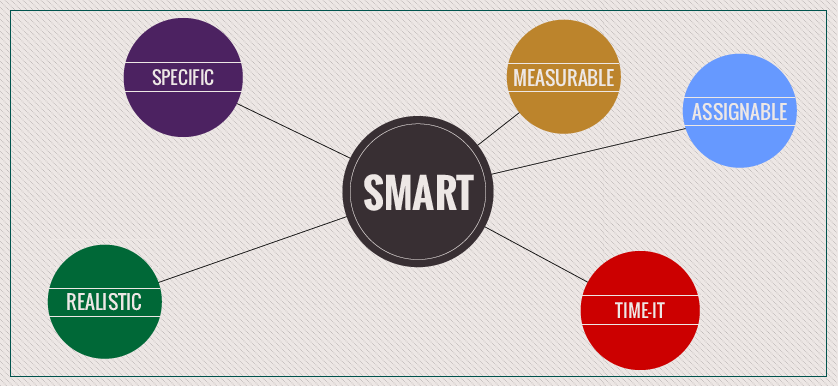
Effective code reviews are a cornerstone of automation testing, fostering code quality, knowledge sharing, and team cohesion. When conducted successfully, code reviews instill confidence in developers, ensuring their contributions meet high standards. They create an environment where every team member has a voice in shaping the codebase and upholding coding standards.
Misunderstanding the value of code reviews can also hinder their effectiveness.
Types of Code Reviews
Code reviews constitute a crucial aspect of any successful software development and automation testing process. In a code review, one or more developers meticulously assess the code written by their peers, offering comments and suggestions to enhance its quality.
- Formal or Technical Reviews: These are highly structured reviews focused on detecting defects in the code. However, they are not widely employed in practical scenarios.
- Synchronous Reviews: This type involves collaborative code examination, including discussion-based meetings, peer code reviews such as pair programming, and instant reviews where one developer observes another coding and provides real-time suggestions.
- Asynchronous Reviews: Commonly known as pull request code reviews, these are the most prevalent. Developers employ tools to send review requests, and their team members conduct the code review online, providing comments and suggestions at their own convenience.
What are Code Reviews Important?

The primary and evident advantage is the enhancement of the code itself. Pursuing perfect code is elusive; however, the notion of better code is attainable through consistent code review processes. This fosters continuous improvement, with each merge advancing over the previous one.
Beyond code refinement, another crucial aspect is the positive impact on morale. Code reviews offer valuable learning opportunities for every team member, fostering communication within the team.
Code reviews play a particularly significant role for remote workers by preventing the formation of silos. Developers operating in isolation may inadvertently develop their coding processes, potentially losing sight of the broader context. Engaging in collaborative code reviews serves as a preventive measure against such isolation.
Code Review Issues
Despite their undeniable benefits, code reviews are not without their challenges. Some common issues that can impact the effectiveness of code reviews include:
Delayed Feedback:
Issue: Developers experience prolonged wait times for their code to be reviewed and receive feedback.
Impact: Delays in the review process can impede the overall development timeline.
Vague Feedback:
Issue: The comments provided are too concise, making it challenging for developers to take actionable steps.
Impact: Vagueness in feedback can lead to negativity, frustration, and a lack of motivation among developers.
Personality Conflicts:

Issue: Differing opinions, backgrounds, and approaches among developers contribute to conflicts during the review process.
Impact: Personality conflicts can hinder effective collaboration and communication within the development team.
Task Overload for Developers:
Issue: Developers, already burdened with numerous tasks, may deprioritize or put less effort into code reviews.
Impact: Insufficient attention to code reviews can compromise the quality of the overall codebase.
Challenges with Lengthy Code:
Issue: Longer pieces of code pose challenges for thorough reviews, with developers potentially overlooking small issues.
Impact: Incomplete reviews of lengthy code segments may result in overseeing critical issues.
Navigating these challenges requires a proactive approach to streamline the code review process and foster a collaborative and constructive environment.
Strategize Focus on Significant Issues; Mitigate Attention to Trivial Matters

Implementing a strategy known as “min-max focus” entails reducing emphasis on trivial matters while channeling greater effort toward issues that encourage learning. The objective is to alleviate exhaustion from reviews and foster opportunities for team growth.
Diminish Focus on Trivial Issues
The goal is to reduce the overall number of inconsequential decisions during a code review by mitigating ambiguity and leveraging automation. Clarity in coding style guidelines specific to each codebase is paramount.
Amplify Focus on Non-trivial Issues
In tandem with minimizing unnecessary decision-making, the emphasis should be on magnifying attention to substantial issues during code review. Narrowing the scope of pull requests proves beneficial, aligning with the single responsibility principle (SRP).
Nurture a Positive Code Review Culture
Leadership plays a pivotal role in instilling the right mindset within teams.
Advocate Team Ownership:

Emphasize that code reviews are collaborative efforts to elevate the team collectively, not competition. Promote shared ownership of the code to discourage code attachment tendencies, where engineers resist feedback or changes, especially in substantial PRs.
Employ Indirect Inclusive Language:
Team members should be adept at providing effective code review feedback, and this training should be integrated into the onboarding process. Code review feedback should be delivered politely and respectfully. Utilizing indirect language and framing suggestions as questions fosters an inclusive atmosphere and shared responsibility for the code.
Encourage engineers to offer feedback with a deep understanding of the underlying reasoning. Requesting changes without comprehending the rationale contributes to a lack of conscious knowledge transfer, hindering overall team understanding and improvement.
Encourage Positive Experiences and Learning Opportunities
Once you’ve streamlined your review process by eliminating the trivial, aim to create a positive environment. Do participants gain valuable insights and knowledge during your code reviews? Do they leave feeling enriched and engaged?
If not, why?
As developers, it might be the joy of refining our work through feedback loops or the satisfaction of applying precision and logic. Regardless of our motivations (unless purely financial), discovering better methods or time-saving shortcuts excites us. Strive for this kind of engagement during code reviews.
When senior developers quiz newcomers and only sign off on their work, it leads to limited and negative outcomes. It fosters a sense of learned helplessness, cultivates toxicity, and overlooks the larger opportunity at hand.
Instead, focus on highlighting effective techniques and impressive achievements within the team. Utilize the code review platform as an avenue for commendation and knowledge sharing among team members. Create scenarios where everyone walks away having gained new insights. Dedicate part of the review session to celebrating the positive aspects of the code, not solely dissecting it.
Avoid Prolonged Engagement in Any Task

To maintain focus and effectiveness, it’s recommended not to review code for more than 60 minutes at a stretch. Taking breaks and conducting more frequent reviews help improve the overall quality of work.
Understanding the Art of Negotiation
If a dispute remains unresolved during discussions, consider shifting the conversation to a private call or chat. Collaborate to assess whether the matter warrants stalling the ongoing change request or if it could be resolved within a different context.
Maintain a flexible yet pragmatic approach, balancing efficiency (delivery) and effectiveness (quality). This requires a collective decision by the team. In these instances, consider a code review as an iterative process rather than a definitive resolution. Always anticipate the potential for enhancements in subsequent rounds.
Facilitating Face-to-Face Code Reviews
Combining the author and reviewer in a pair programming format can yield substantial benefits. This method is particularly advantageous for intricate code reviews or situations where significant knowledge sharing is possible.
While this form of code review occurs offline, it’s beneficial to document the discussions online, especially for subsequent changes made post-meeting. This practice helps maintain an updated record for other online reviewers, ensuring they’re informed about the progress and discussions.
Setting goals and capturing metrics

These elements are fundamental aspects of an effective code review procedure. Teams must define measurable goals utilizing SMART criteria, including external benchmarks (like decreasing support calls) and internal procedural metrics (such as inspection rate, defect rate, and defect density).
Automated tools equipped with consistent metrics can offer unbiased and precise insights.
Creating a structured procedure to address identified defects during the review process
Collaborative code review tools that allow logging bugs discussing them with the author, and approving changes facilitate an organized approach to bug resolution.
A positive code review culture is vital for successful peer reviews. Reports from peer code reviews should not be used in performance evaluations, as this can lead to hostility and a focus on personal metrics rather than overall code quality.
Team Code Reviews: A Quest for Progress, Not Perfection
Regardless of how you structure your code reviews, it’s crucial to understand that, when executed effectively, they yield incremental advancements, not absolute perfection. Let’s be clear: achieving perfection is an unattainable goal.
Consider a single design flaw identified and rectified after a review—a victory in itself. If a significant portion of the team discovers a new and innovative approach, that’s another success. Even engaging in a thought-provoking debate about the acceptability of code duplication within unit tests can be considered a triumph. The effectiveness of a code review manifests in its ability to drive improvements.
Therefore, when conducting code reviews, consistently evaluate whether they generate advancements. Are they elevating the team’s performance, or are they merely complying with a procedural routine?
Conclusion
Upon gaining sufficient time and experience, engaging in code reviews goes beyond technical learning. Each code review presents an opportunity for both collective and personal development.
Ultimately, sharing and collaborating are integral components that contribute significantly to our ongoing advancement and growth.










